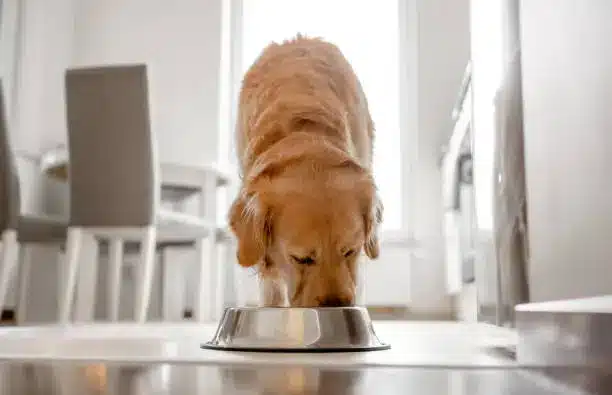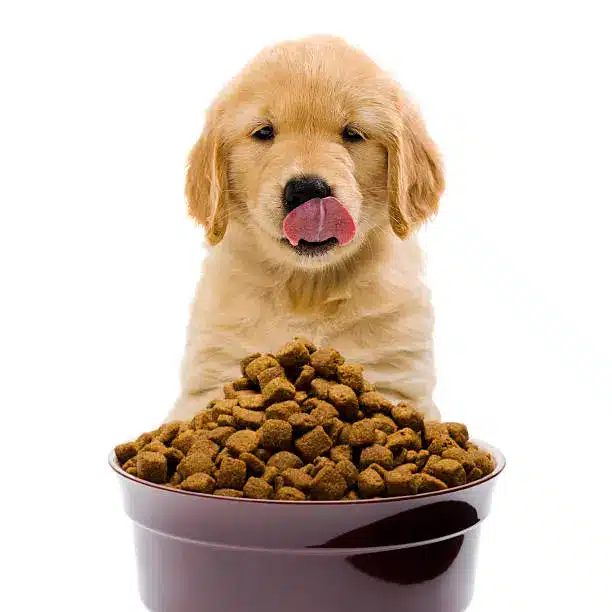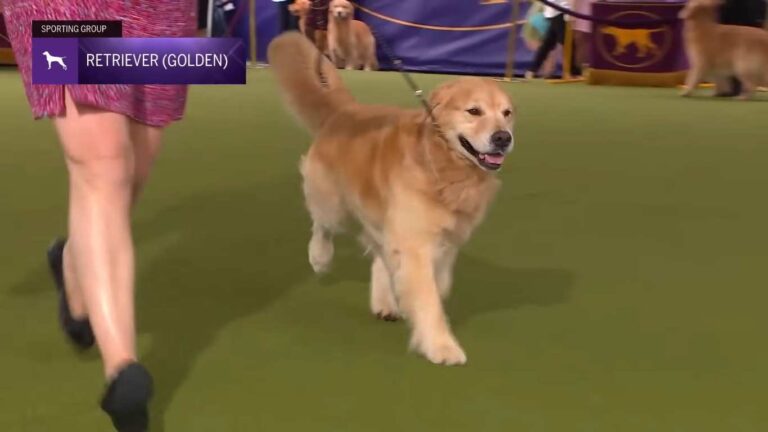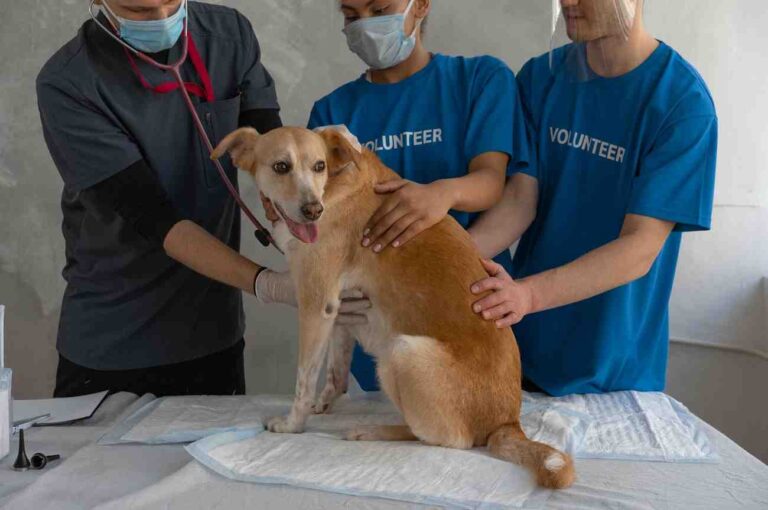Nutrition for Golden Retriever Puppy Growth: Bringing a Golden Retriever puppy into your life is one of the most joyful experiences. They’re not just cute and fluffy but also full of energy and mischief. But raising a happy and healthy puppy requires more than just playtime and cuddles. One of the most important things you’ll need to focus on is their nutrition.

Golden Retriever puppies grow quickly, and the right food helps them develop strong bones, shiny coats, and lots of energy for all those zoomies around the house. In this post, we’ll cover everything you need to know about feeding your Golden Retriever puppy. Let’s dive in.
Why Good Nutrition is Important for Golden Retriever Puppies
Golden Retrievers are a large breed, which means they have special nutritional needs. As puppies, they need the right balance of protein, fat, and nutrients to support their rapid growth. Feeding them the wrong food or overfeeding can lead to problems like obesity, joint issues, or even developmental problems.
When my Golden Retriever, Max, was just a puppy, I didn’t realize how important it was to choose the right food. I gave him treats often, thinking it would make him happy, but I quickly noticed he was gaining weight too fast. A visit to the vet taught me a lot about what he needed to stay healthy, and I’m sharing those tips with you here.
What Nutrients Do Golden Retriever Puppies Need?
Golden Retriever puppies need high-quality food that supports their growth. Here are some of the key nutrients they require:
- Protein: Helps build muscles and tissues. Look for food with chicken, fish, or lamb as the first ingredient.
- Fats: Give them energy and keep their coat shiny. Healthy fats like fish oil or chicken fat are great options.
- Calcium and Phosphorus: These are important for strong bones and teeth. But too much can harm them, so balance is key.
- DHA (Docosahexaenoic Acid): This omega-3 fatty acid is crucial for brain and eye development.
- Vitamins and Minerals: Support overall health, immunity, and growth.
How Much and How Often to Feed a Golden Retriever Puppy
Golden Retriever puppies need to eat frequently because their little bellies can’t handle big meals. Here’s a simple feeding guide based on their age:
- 8-12 weeks: 4 meals a day
- 3-6 months: 3 meals a day
- 6-12 months: 2 meals a day
Make sure to follow the feeding instructions on the puppy food bag. Every brand is a little different, and portion sizes depend on your puppy’s age and weight.
Best Food Choices for Your Golden Retriever Puppy
There are three main options when it comes to feeding your puppy:

- Commercial Puppy Food: This is the most common choice. Look for a high-quality brand that lists real meat as the first ingredient. Avoid foods with fillers like corn or artificial preservatives.
- Homemade Diets: Some people prefer to cook for their dogs. If you go this route, make sure to consult a vet or pet nutritionist to ensure the meals are balanced.
- Raw Diets: These can be great but are a bit more complicated to prepare. Hygiene is crucial to avoid bacterial contamination.
When Max was a puppy, I stuck with a high-quality kibble designed for large breeds. It was easy to manage, and I knew he was getting the nutrients he needed.
Related Post: Best Foods for Golden Retriever in 2024
Foods to Avoid
Not all foods are safe for puppies. Here are some things you should never feed your Golden Retriever puppy:
- Chocolate
- Grapes or raisins
- Onions and garlic
- Cooked bones (they can splinter)
- Foods with artificial sweeteners like xylitol
Also, avoid over-supplementing. Giving extra calcium or other vitamins without a vet’s advice can do more harm than good.
A Simple Diet Chart for Your Golden Retriever Puppy
| Age | Meal | Portion Size (based on weight) |
|---|---|---|
| 8-12 weeks | Puppy kibble + warm water | 1/4 to 1/2 cup per meal |
| 3-6 months | Puppy kibble + some boiled chicken | 1/2 to 1 cup per meal |
| 6-12 months | Puppy kibble + veggies (carrots, peas) | 1 to 1.5 cups per meal |
For treats, stick to healthy options like small bits of boiled chicken or commercial treats designed for puppies. Keep treats to no more than 10% of their daily calories.
How to Know if You’re Feeding Your Puppy Right
A healthy puppy will have:
- A shiny coat
- A good amount of energy
- Consistent growth (not too fast or too slow)
- Regular and firm stools
If your puppy seems tired, has a dull coat, or you notice sudden changes in weight, it might be time to adjust their diet or visit the vet.
Common Feeding Mistakes to Avoid
- Overfeeding: Too much food can lead to obesity and joint problems. Measure portions carefully.
- Free Feeding: Leaving food out all day encourages overeating. Stick to scheduled meals.
- Feeding Human Food: Many human foods are unhealthy or dangerous for puppies.
Special Considerations for Health Conditions
Some Golden Retriever puppies may have sensitive stomachs or allergies. If you notice itching, vomiting, or diarrhea, your puppy might need a special diet. Always consult your vet if you’re unsure.
When Max was about six months old, he started itching a lot. After trying a few different foods, I found a grain-free option that worked wonders. It’s a good reminder that every puppy is different, and what works for one might not work for another.
Final Tips for Feeding Your Golden Retriever Puppy
- Always have fresh water available for your puppy.
- Stick to a routine. Puppies thrive on consistency.
- Transition to adult food around 12 months old, but do it gradually over 7-10 days to avoid an upset stomach.
Raising a Golden Retriever puppy is a wonderful journey. By giving them the right nutrition, you’re setting them up for a happy, healthy life. It might take some trial and error to find what works best, but with a little patience and love, you’ll have a strong and energetic furry friend by your side.
I hope this guide helps you feed your Golden Retriever puppy with confidence. If you have any questions or tips, feel free to share them. Max and I wish you all the best on your puppy journey!




[…] Related Post: Feeding Your Golden Retriever Puppy the Right Way […]